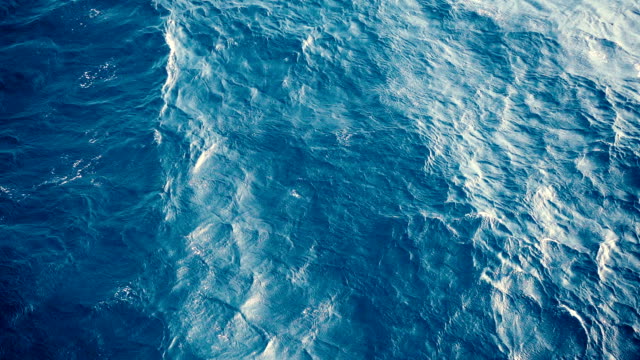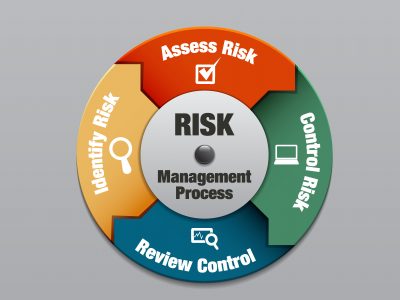The lost city of Stargate Atlantis is the ideal underwater example of how rich our history with water bodies has been. The very fact that the underwater life has always welcomed us into their own home and we as fellow beings of the earth have not only tainted the place they call home but also have been misusing our resources to hurt them. The very nature of man constitutes greed; he has always taken more than what he needs and in this process destroys what is not his but something nature has been kind enough to let him borrow from her.
The mistakes made by people in the past have severely affected the oceans, however with climate activism on the rise; there are a lot of people who are switching to healthier and more sustainable lifestyles reverse the havoc humans have caused. It is important to note that the damage brought to our natural resources today is not something which was done overnight and will take years to reverse it. Let us come together and take the first step towards a sustainable lifestyle that aids in preserving the gift of nature. This world ocean day understands the widespread disasters of the threat it entails to the ocean whilst knowing the beauty and mystery it holds within its extensive depth.
Observed on the 8th June of every year, World Oceans day aims at creating awareness amongst citizens of the world about the benefits, the ocean has to offer and what we can do as individuals to prevent the deterioration of the water bodies that are being affected due to climate change.
Around 70% of the earth’s surface is covered by water bodies. These water bodies host animals, plants, and organisms that help maintain a particular ecological balance. These water bodies fill up cracks and crevices of the earth and the plants living in these water bodies almost make up for about 50% of the globe’s oxygen. “The Ocean: Life and Livelihood”, the theme for 2021’s world oceans day aims at celebrating the earth’s extensive biodiversity and how a man can help attain balance and establish a relationship with the ocean, not out of greed but for the ocean and the life that sustains inside it.
To truly achieve sustainability for our oceans, we must go beyond semantic planning. The ocean provides more than just fossil energy, free trade, and fish. This generation’s climate activism has really initiated a lot of people to adapt to sustainable lifestyles and establish a performing marine ecological system. Apart from the above-mentioned activities, oceans also help make life livable on earth by absorbing almost 90% of additional heat trapped by the atmospheric blanket surrounding the earth. They also serve as a source of protein for over 2 billion people across the globe.
Keeping the potential dangers in mind, Envision 2050: The future of oceans is a brainchild of climate activists at the University of Minnesota. This year-long series aims at educating people about the possible dangers of an imbalanced ecosystem and strategically acting a certain way to maintain the stability of the oceans. With climate change advocates and activists on the rise and people coming together to bring about a major difference by individually contributing their bit, the vision for 2050 is to look back and admire the difference we have been trying to entail since 2017 battling with oceanic problems concerning toxic waste disposal, pollution, rising sea levels, depletion, acidification to name a few problems. Working on a few of these concerning issues, many concerned environmentalists and oceanographers are working towards protecting Costa cities from the concerning rise in sea levels. Worldly renowned scholars are coming together to figure out the rising sea issue and are working towards developing a course of action to prepare the coastal areas to adapt to the rising sea levels. The goal is in 2050, to look back and see the development we have made towards maintaining a healthy ecological system. Where the ocean will not simply be looked at for trade or for recreation but will be looked at as means of producing renewable energy from greener sources. Renowned scientists also look at the vast flora and fauna the oceans have to offer as sources of medicinal treatment.
The ocean hosts around 17000 species of different organisms alongside millions of different microbes that are not even visible to the naked eye. However many of them are now either extinct or on the verge of depletion due to excessive toxic waste disposal which has led to these sea creatures succumbing to poisonous plastic. The data retrieved from the United Nations Archive states that a minimum of 800 species are affected by ocean spoilage and almost 80% of it is plastic. Fishes, seabirds, sea turtles, and mammals either ingest or get entangled in this debris causing suffocation, indigestion, or even drowning. Plastic takes a thousand years to decompose; after it decomposes it breaks down into tiny little pieces which are swallowed by fishes which are later consumed by humans thus creating a chain of consumption of toxic waste not only by marine life but also by humans.
According to resources, plastic kills almost a million seabirds a year, the sea turtles accidentally ingest plastic which ends up taking a lot of space in their digestive system hence leading to starvation. An estimate suggests that around 60% of sea turtles have ingested plastic in some or the other way and if not controlled the percentage is bound to increase by 99% by 2050.
Climate-related issues are not isolated from the world. There are a lot of speakers that are making sure that these problems are heard and acted upon by people of the entire globe. This is not a political or regional issue. This is something that the entire population needs to come together- to work upon changing certain aspects of our lifestyle and start raising our voices against multinational industrialists to start adapting greener sources of energy to reduce their carbon footprint.
Adapting to plastic-free alternatives such as Meta straws, refillable roll-on deodorants, reusable glass jars. Replacing plastic objects with reusable alternatives decreases your carbon footprint. An average of almost an entire dump truck full of plastic is disposed of into the ocean every minute. Take an initiative to make the minimum use of plastic, engage in recycling and motivate your kit and kin to do the same. Choose environment-friendly travel options for shorter distances; avoid ocean harming products cosmetics containing squalene or souvenir shells.
Charity begins at home, quite rightly said as an individual, it is not only important for you to take steps to protect the place you live in but also to realize that you must advocate what you feel about your place of residence; we only have one planet (research is yet to prove Mars is habitable so that does not count). Signing up for beach clean-ups, peaceful protesting against industrialists, signing petitions about ocean protection programs, and educating the people around you about the potential dangers if more measures are not taken. The environment has always been kind and giving to us, it is time we start giving back. Join us in this revolutionary journey as we rightfully give back Mother Nature what is hers to keep and always remember, change begins with you and your dedication and honesty towards this movement will make it a global revolution.
Submitted By: Akshita Sukhramani, Member of Student Risk Club (SRC)












